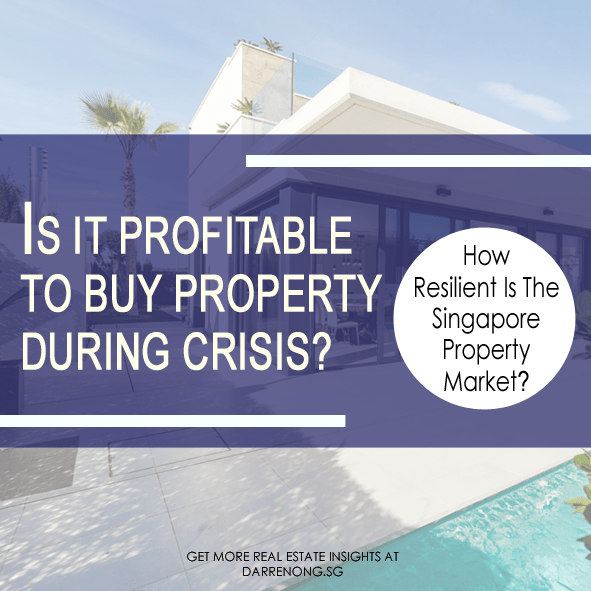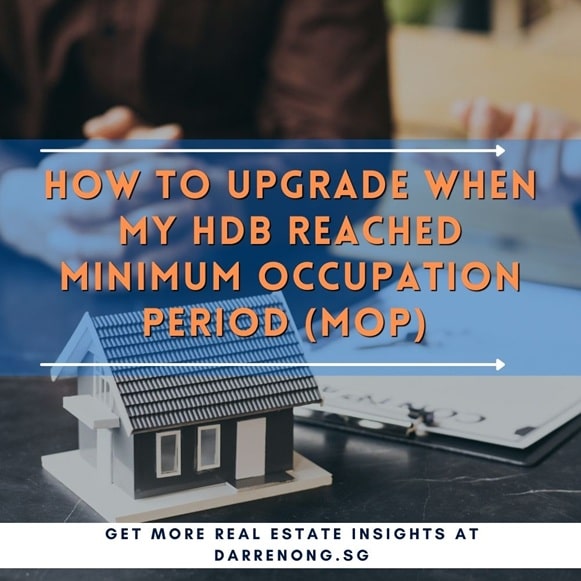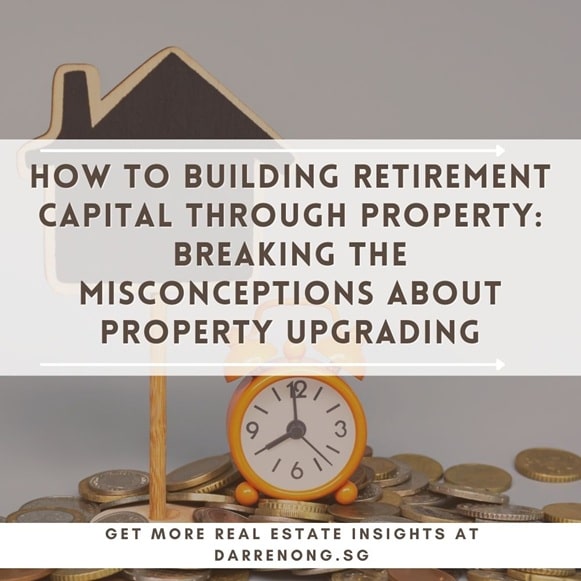Is It Profitable To Buy Property During a Crisis?
There are a lot of topics that people from all walks of life will start to debate during a crisis, for example, like job security, our livelihood, various types of government reliefs, etc.
Another hot topic that is unavoidable is the Singapore property market. Is it profitable to buy a property during a crisis, or how resilient is the Singapore property market?
HOW HOME BUYER FEEL
It is common for a home buyer to be concerned about purchasing a property during a crisis like the current COVID-19 pandemic. It affects everyone globally as a whole, from the global economic downturn, cities lockdown, and putting many businesses to a temporary halt, etc.
If you are looking to purchase your next home in this period but are concerned about making your purchase now, you are not alone.
Today, I will share some facts and figures backed analysis for you if you are concerned about making your purchasing during a crisis.
HOW THE MARKET PERFORM AFTER EACH BOTTOM
Let us take a look at the URA Property Price Index (PPI), during each financial crisis in the past; the new bottom is always higher than the previous crisis low. In the long run, it is still in an upward trend, which shows that there are still opportunities for capital appreciation.
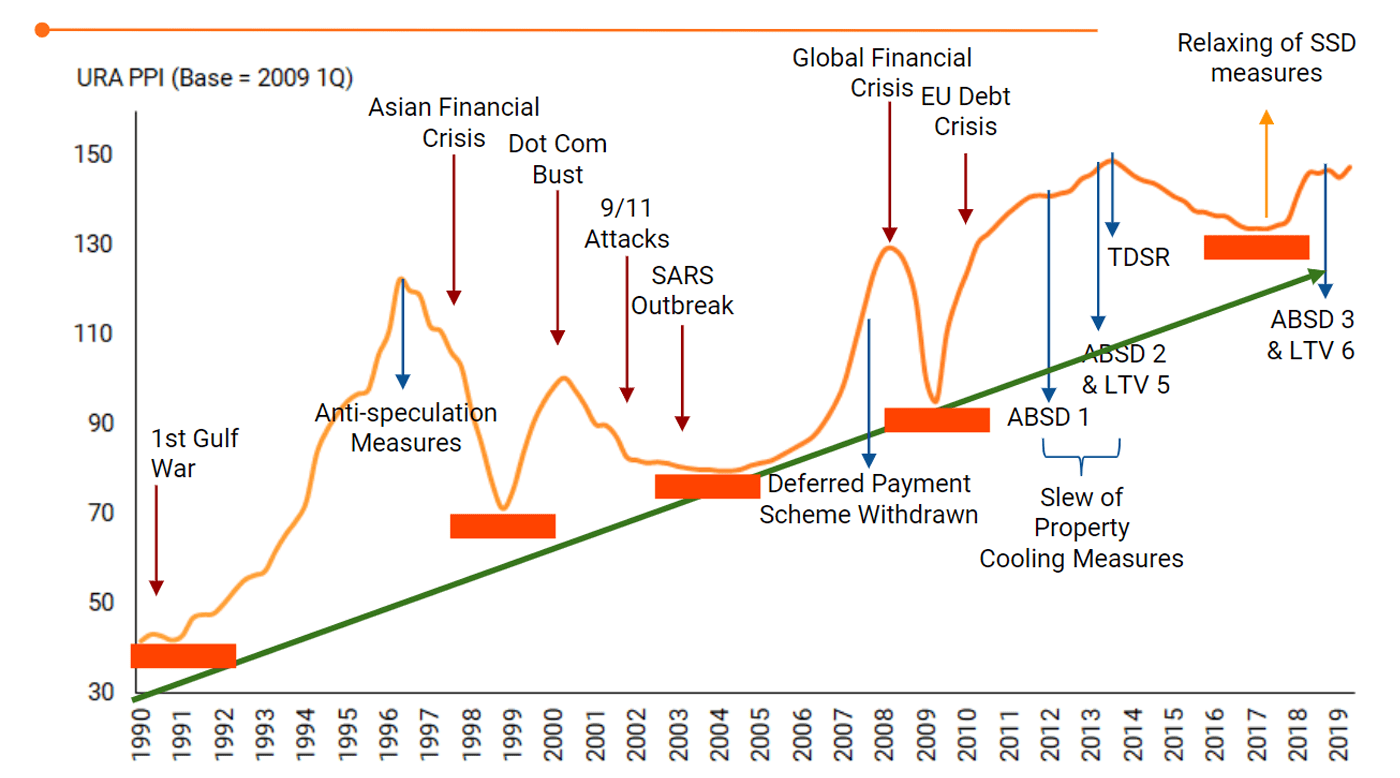
BUYING PROPERTY DURING THE PANDEMIC
Ever since the pandemic outbreak late last year, Singapore was not spared, and it reached our shore in early 2020. Many were starting to take precautions, and companies are also beginning to practice safe distancing measures such as business continuity plans. Since then, there are already some uncertainties way before the circuit breaker starts. But interestingly, investors are still snapping up new home units.
WHY ARE PEOPLE STILL BUYING? IS IT THE BEST BUYING OPPORTUNITY NOW?
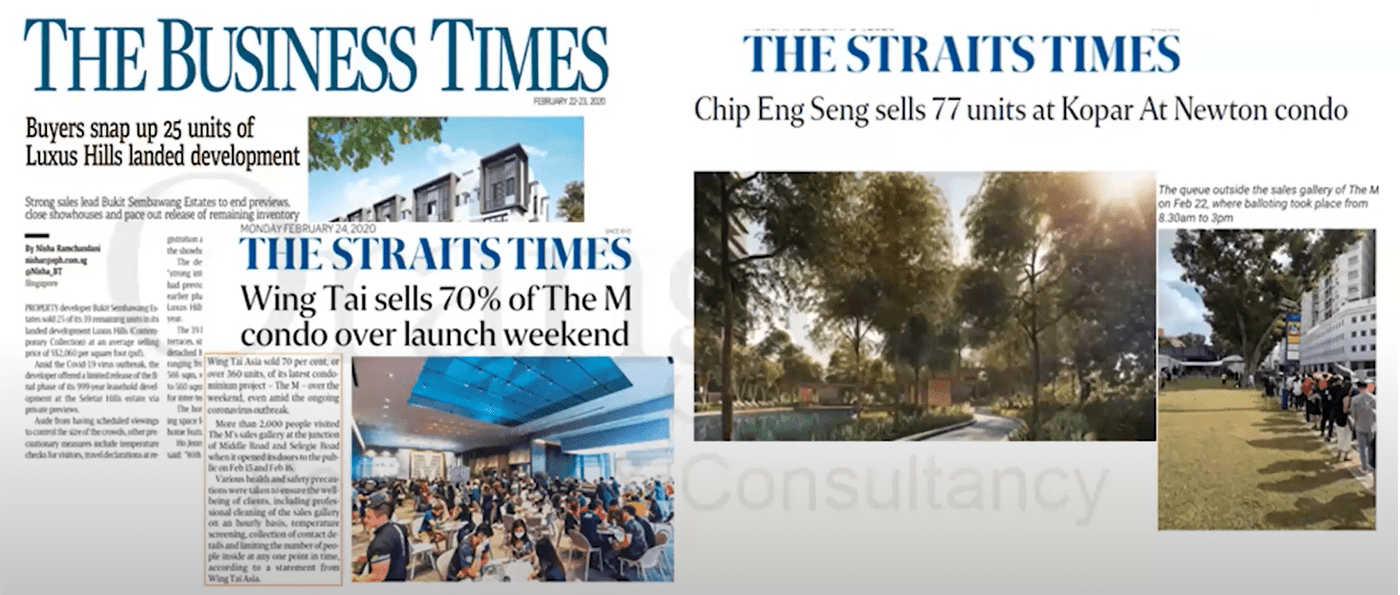
Probably, these investors share the same mindset as Warren Buffett.
“Be fearful when others are greedy and be greedy when others are fearful – Warren Buffett.”
As happened in the past, the property market had followed a similar trend as the stock market.
For example, the STI reached its bottom in the Asian financial crisis around Q3 1998, then URA PPI reached its bottom 1Q later in Q4 1998. It same goes to the Global financial crisis, where the STI bottom took place near to Q1 2009, the URA PPI reached it bottom 1Q later again, in Q2 2009.
Thus we take a look at the STI trend as an indicator for our prediction.
In 1997, the Asian financial crisis, the STI trading volume increased over 68 times before price recovery.
During the Global financial crisis in 2007, the STI trading volume increased by 105% before price recovery.
It seems that investors are rushing into the market before the market picks up.
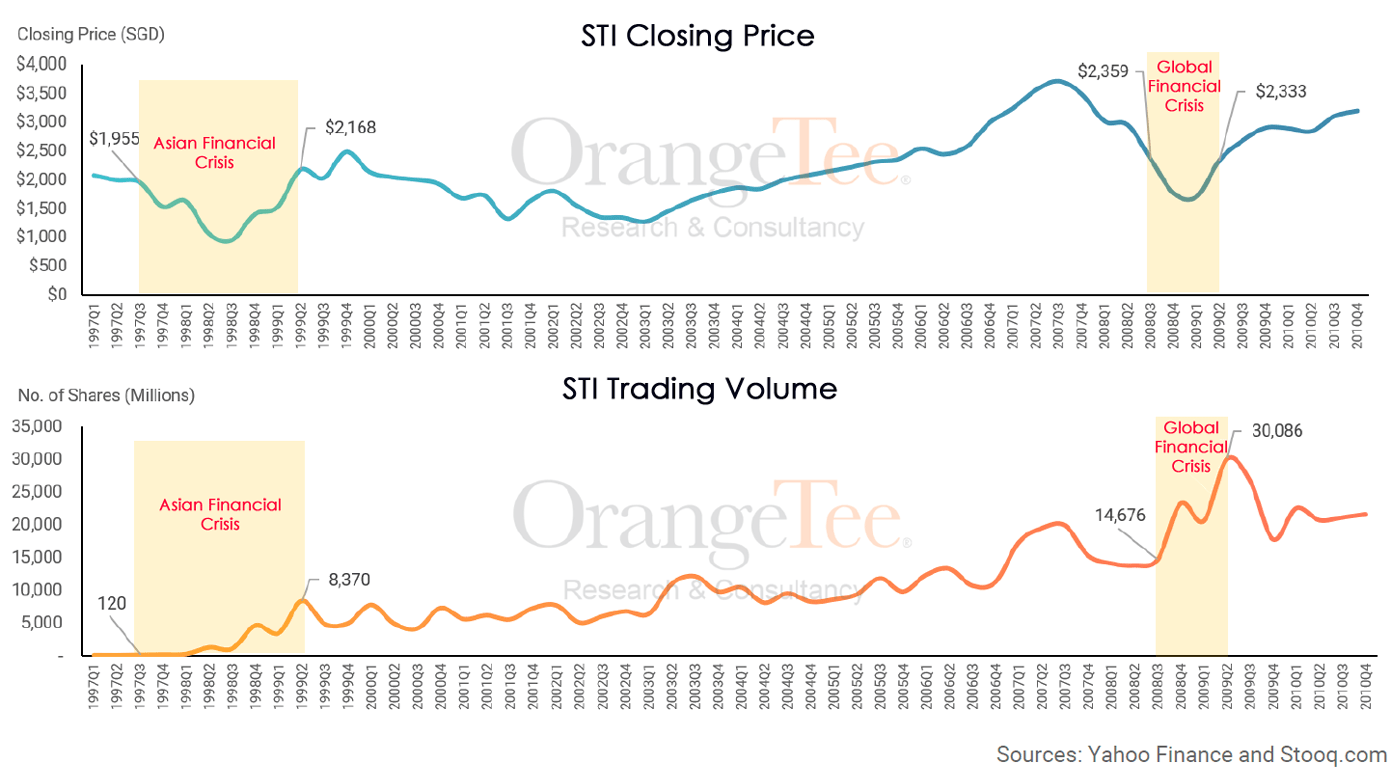
It’s a repeating indicator from the following chart. In March 2020, the STI closing price fell sharply, but there is a spike in the trading volume. This means that opportunistic traders are entering the market in search of profiting stock during the crisis.
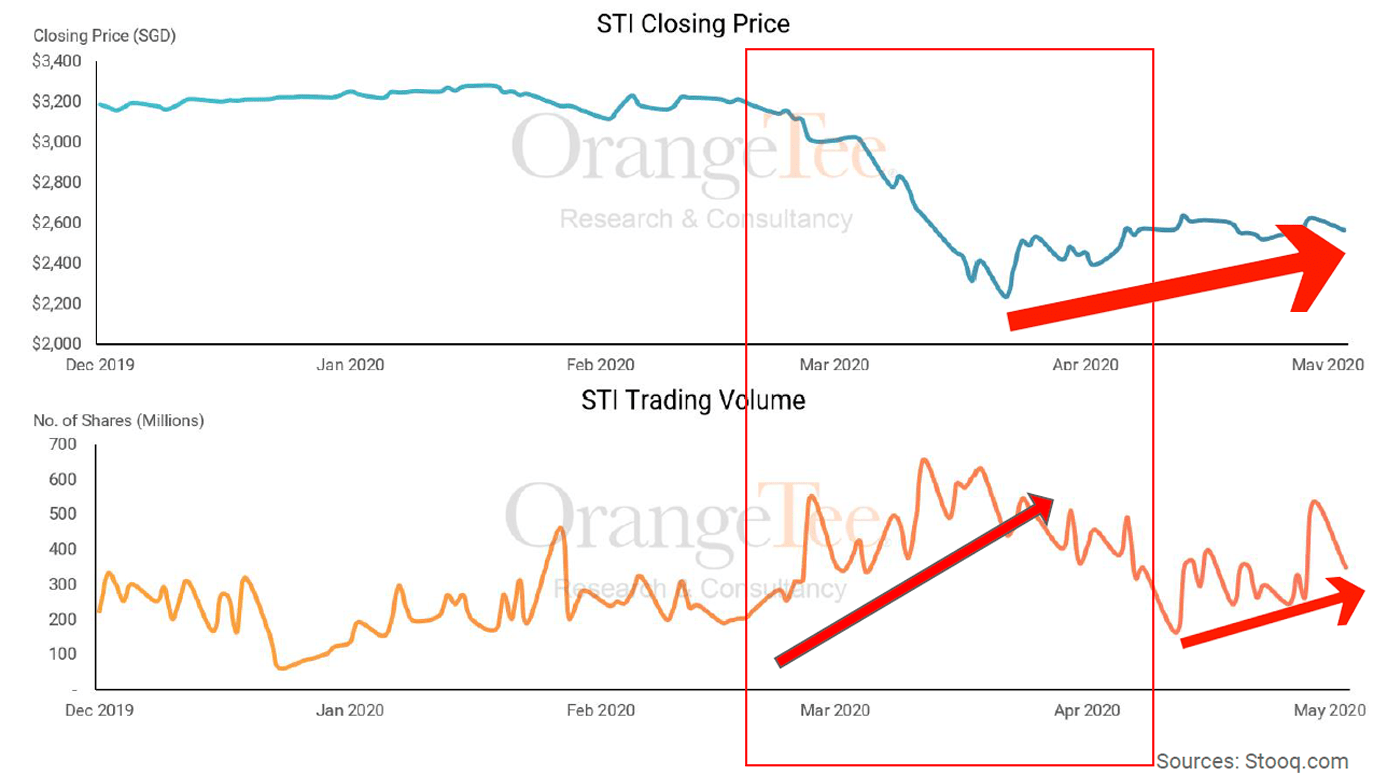
With the above stock market indicator starting to pick up, what will happen to the property market?
Let’s take a look at the Singapore GDP growth VS URA Overall PPI chart below. In Q1 2020, the flash data shows that Singapore will be heading into recession, which is not the first time it happened.
Looking at the past crises such as the Asian financial crisis, 9/11, and Global financial crisis or H1N1 took place. Singapore also headed into the recession. The Singapore property market softens as well.
In Q1 2020, it happened again where the property market starts to soften too when the GDP went into negative. But during the past crises, all the Singapore negative GDP period didn’t last long; it’s about three quarter or at most four before it starts to pick up again.
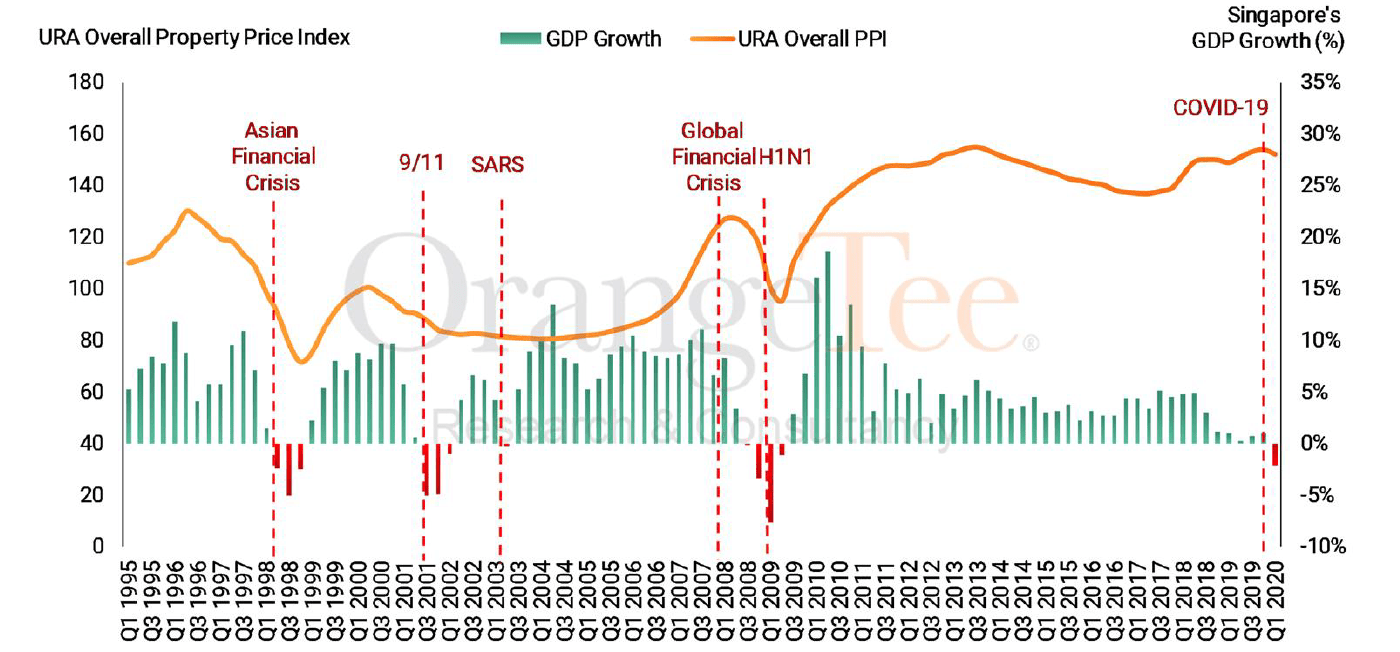
On the other hand, we look at the sales volume chart below. Whenever property prices fall, the sales volume immediately rebounded. It happened in all previous crises as well.
The opportunity windows to buy during all the previous crises is very short before it rebounded again. Investors are ready to charge into the market when good picks are available.
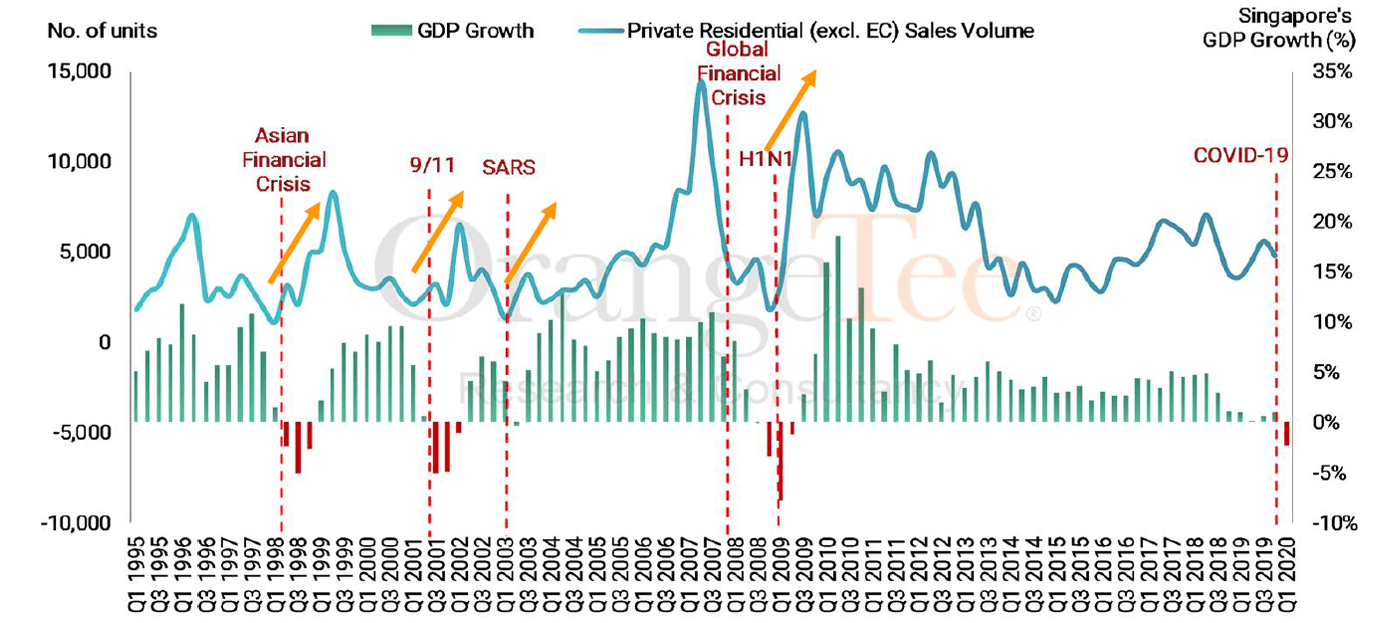
Here are some examples where new homes are sold within days or weeks during the past crises in 2008-2009.
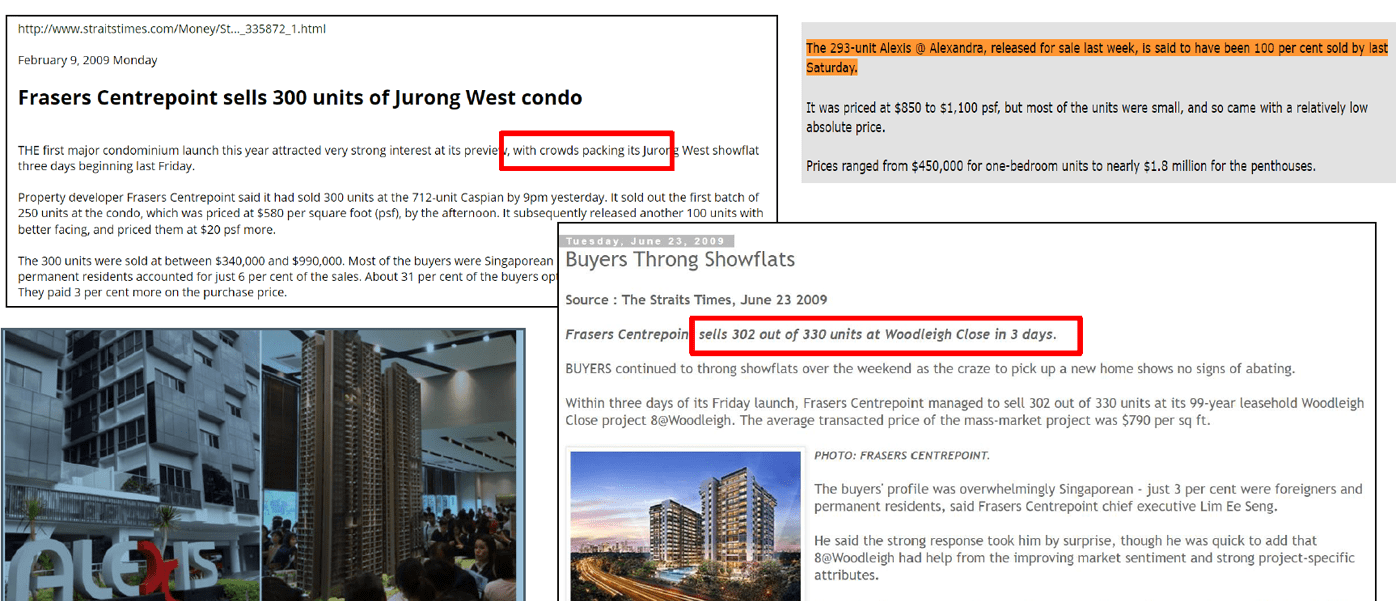
The fact is, while some may look at the negative news that is happening now in a recession, there are also many looks it in another perspective at opportunities point of view.
For example, funds are coming into Singapore and venture capitalists are entering the market to buy distressed firms or buildings, etc.
Now let’s relook again at the new home sales chart from URA caveat lodge during the past quarters. Interestingly during Q1 2020, from January to March, where the pandemic outbreak started and affected many, the new home sales were still looking healthy.
The volume growth was 199.5% year on year, even though we are into the pandemic outbreak.
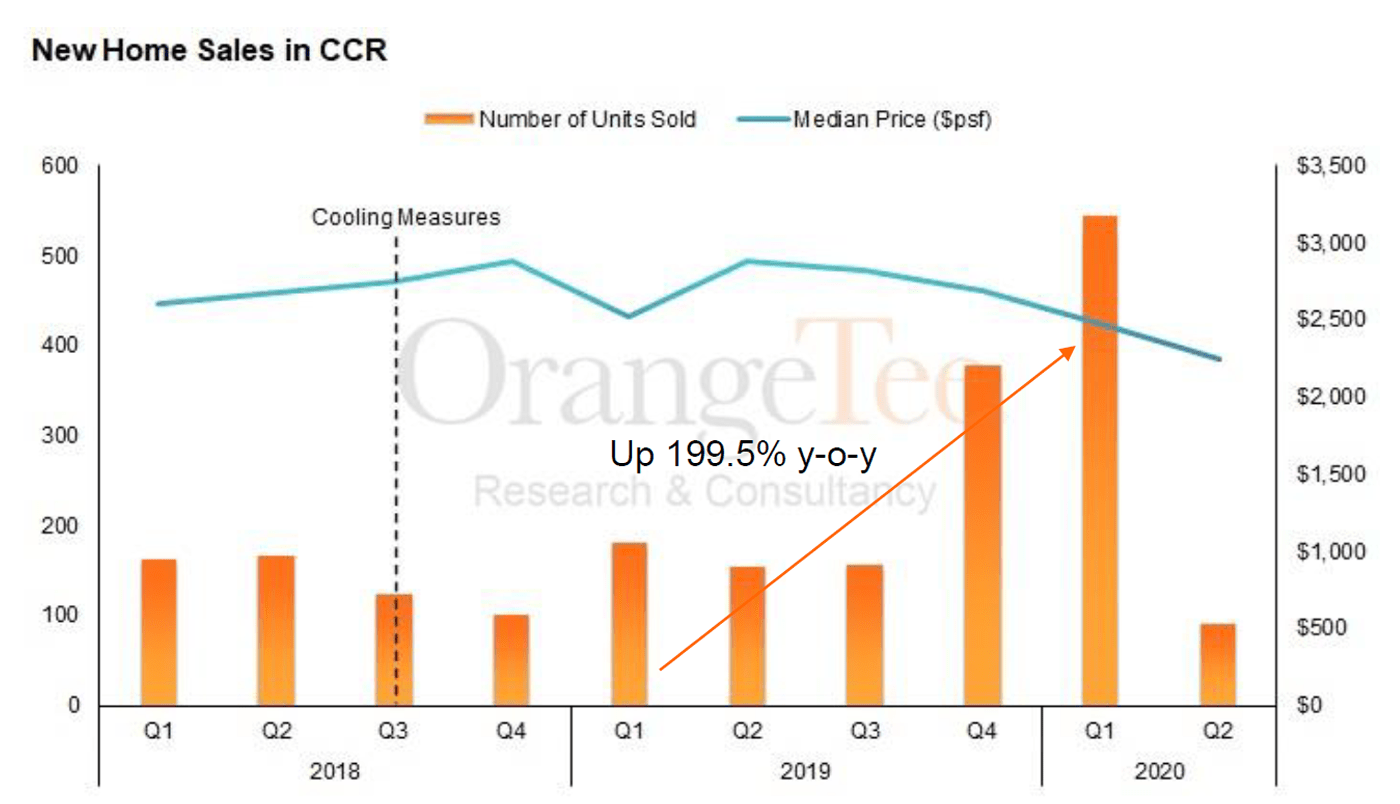
The other segments remain healthy in Q1 2020 as well. And the total units in Q1 2020 are almost touching the five years average as well.
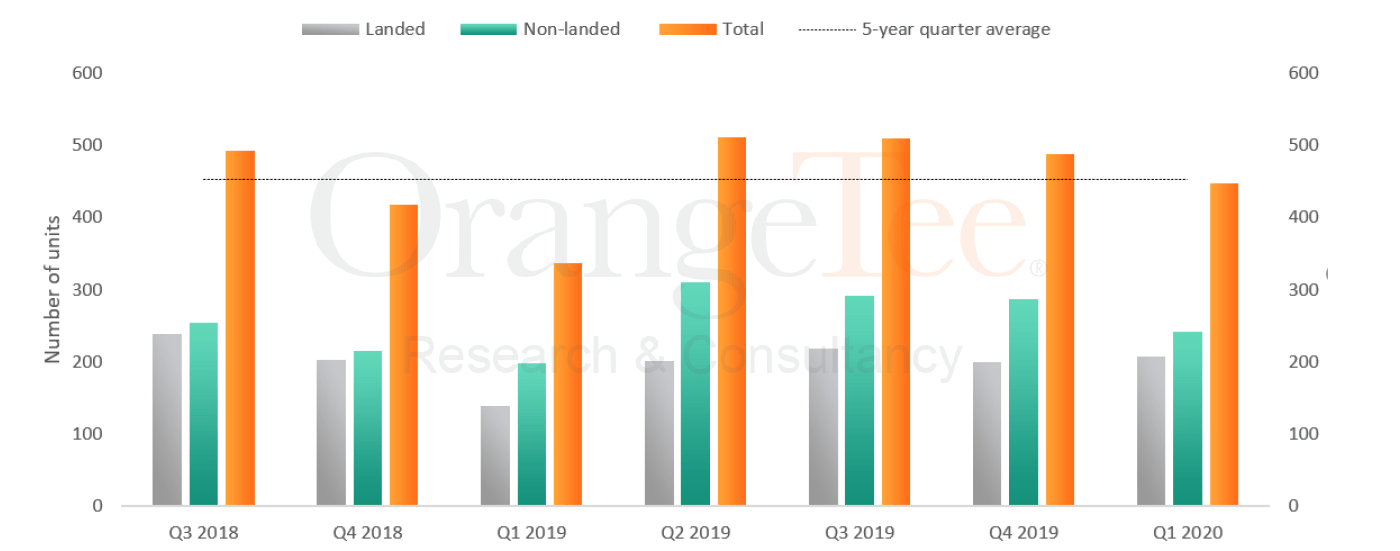
41 ultra-luxury homes changed hand above $10 million in Q1 2020, and 5 transacted during the circuit breaker period during the April period.
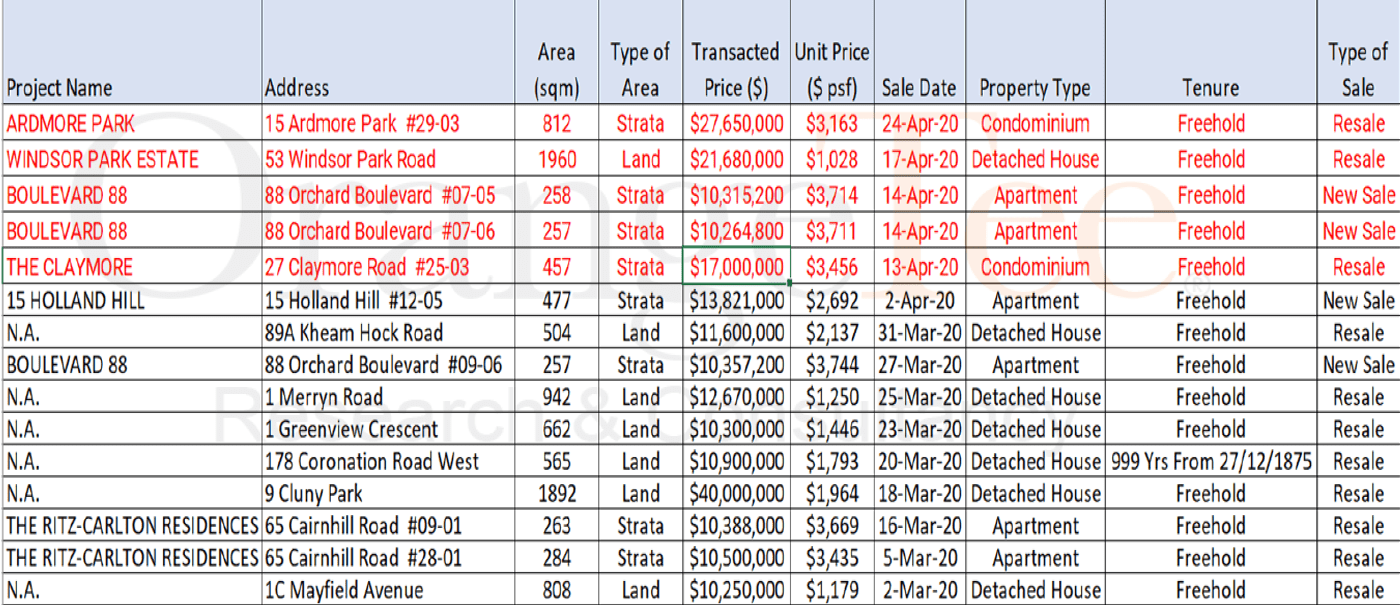
With the above finding, we can conclude that the rich, ultra-rich, and investors are entering the property market to pick up units during the pandemic and recession periods.
PAST PRIVATE PROPERTY TREND
Based on the Urban Redevelopment Authority (URA) caveats, there are 15,712 new homes purchased and subsequently resold via sub-sale and in the resale market from 2007 to 1Q2020. The breakdown of the units and average gross profit in different market segments are as following:
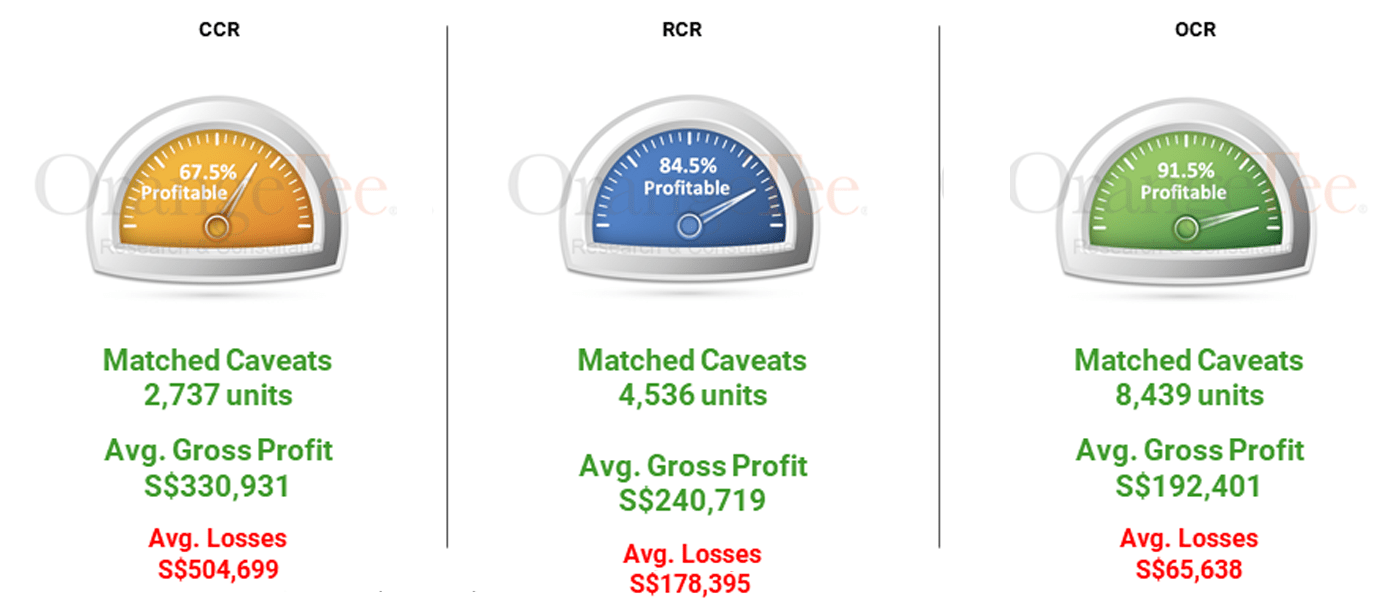
There were 2,737 matched transactions in the Core Central Region (CCR) where the luxury homes are, and 67.5 percent units were profitable when it changed hand. The average gross profit is $330,931.
4,536 matched units changed hand in the Rest of Central Region (RCR), the city fringe areas. 84.5 percent of the units profited when sold. The average gross profit is $240,719.
The balance 8,439 units changed hand in the Outside Central Region (OCR), the mass market segment, and 91.5 percent sold at a profit. The average gross profit is $192,401.
Interestingly, the highest gross profit-making new homes for the non-landed mass-market segment, these properties were purchased during the global financial crisis, as shown below.
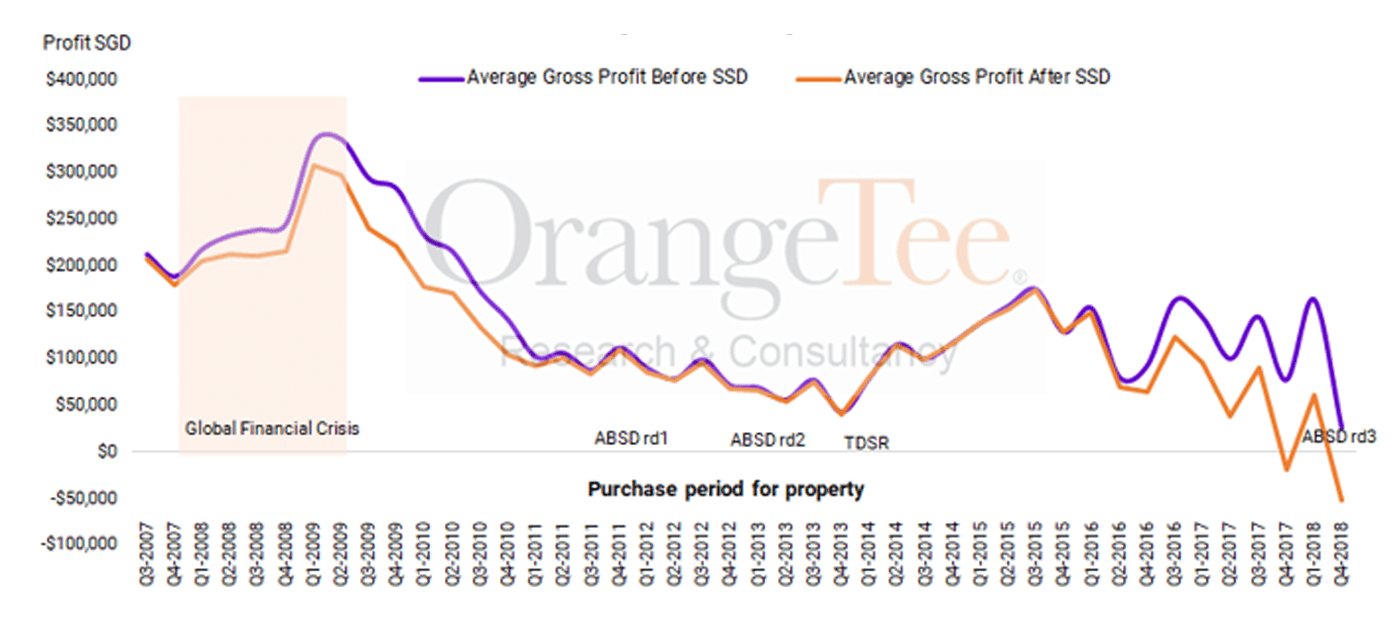
If we factor in those properties that hold long after the seller stamp duty (4 years) period, those units purchased during the last financial crisis has the highest gross profit-making units, across the non-landed luxury, mid-tier, and mass-market homes.
If we take a closer look, average gross profits dropped after the introduction of ABSD, and during the 2012/13 periods, there are property bought at all-time high together with ABSD, these are the properties that highly is making a loss.
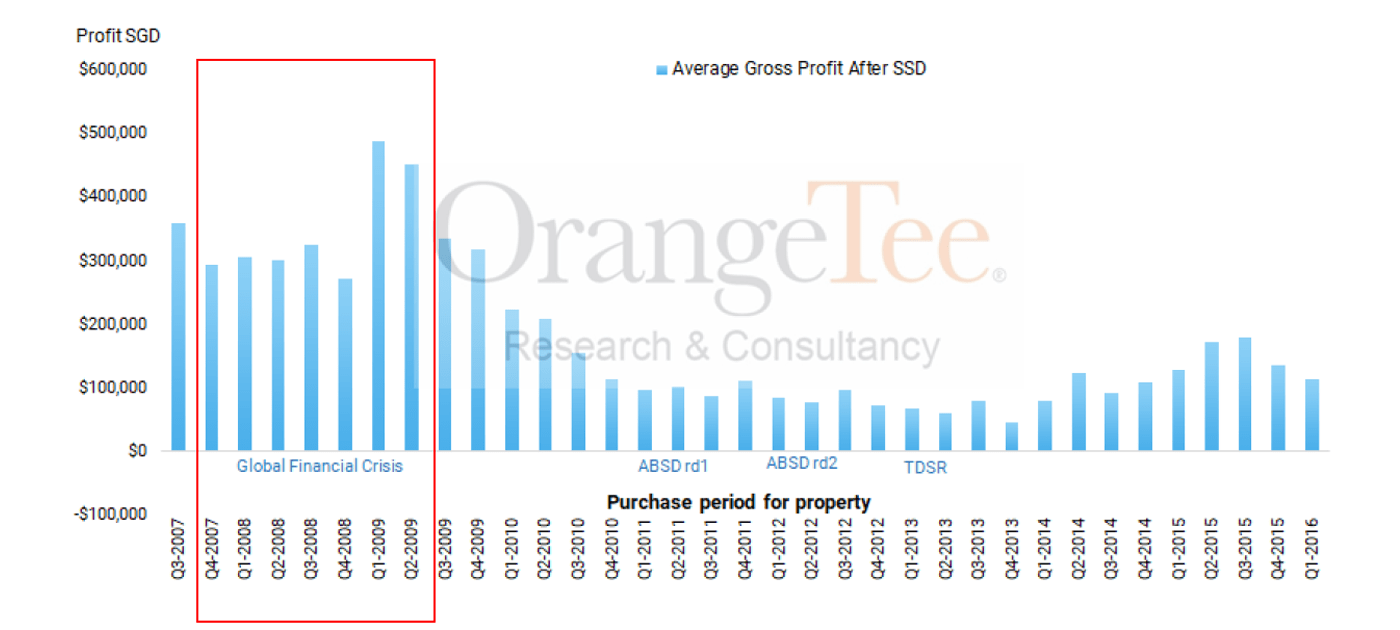
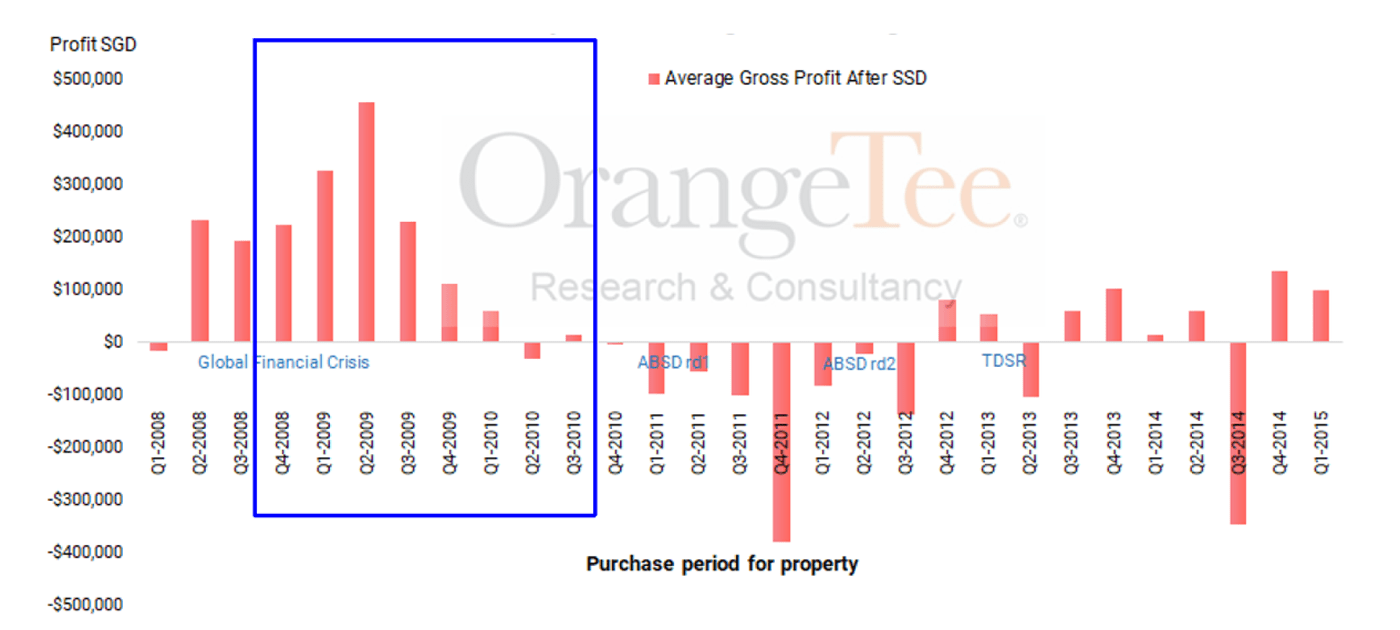
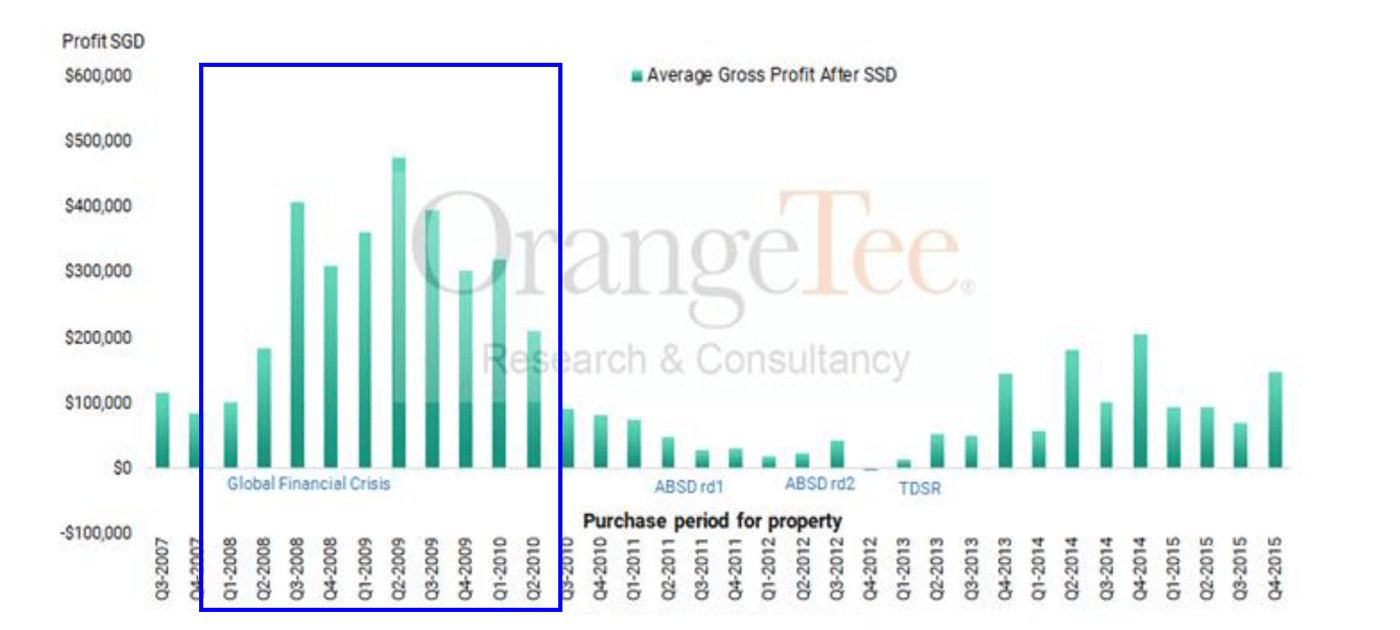
The finding below shows that home purchased during the global financial crisis has few properties making a loss compared to other periods.
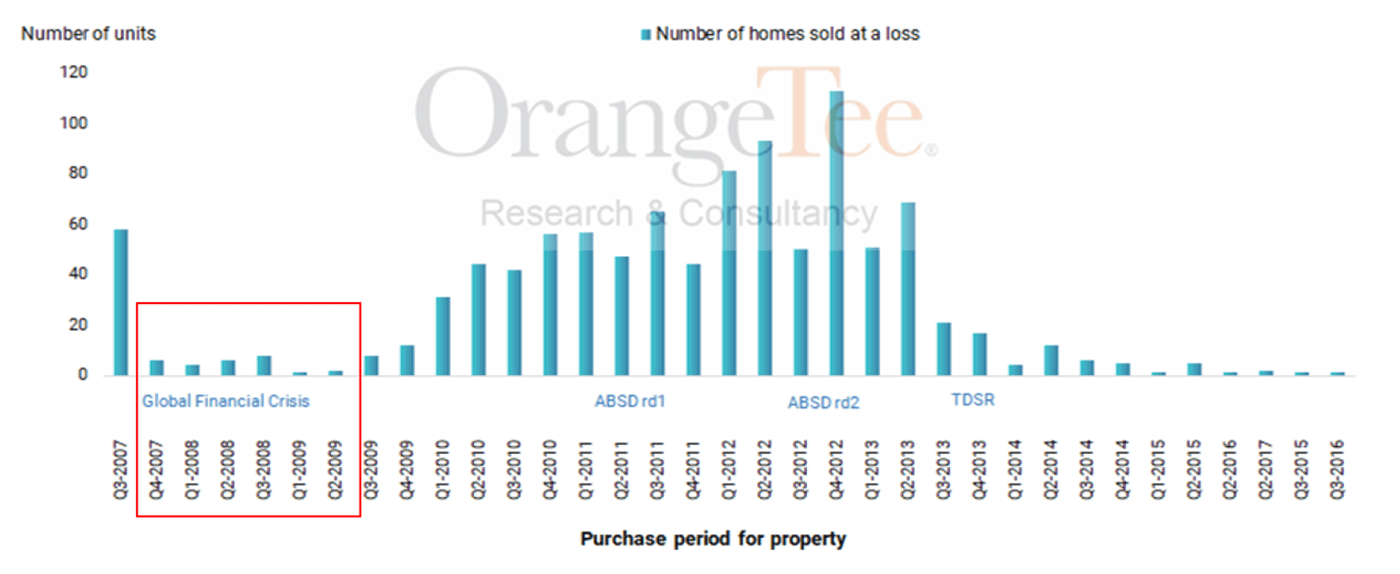
PRESENT – COVID-19 PERIOD
There are still many investors going around to purchase property virtually via virtual property tour during the COVID-19 circuit breaker period.
RECENT GOVERNMENT ANNOUNCEMENT
In order to prevent panic selling or market crashing, the government had also announced some temporary relief to soften the impact on the real estate industry:
• ABSD Remission period extended for sales of the matrimonial home.
• Property developer’s sale timelines extended.
• Mortgage loan deferments scheme.
• Temporary property market relief for new home buyers who are unable to exercise their options or are unable to make payments on schedule.
• Various budgets such as Unity budget, Resilience, and Solidarity budgets and Fortitude budget help support, transform, care for, and secure Singapore.
With these reliefs in place, property sellers or developers under pressure to sell are now temporarily eased. In short, property prices should remain much more resilient, and drastic discounts may not materialize.
Furthermore, SSD, TDSR, MSR, LTV, and ABSD are still in place, which helps to checks and balances Singaporean or property buyers from overleveraging or overcommitted into purchasing property or preventing from property speculation to create a more sustainable property market in Singapore.
PRESENT HDB TREND
Despite the full month circuit breaker measure in May 2020, where no physical viewing of property is allowed, there are still 364 HDB Resale flat changed hands in May 2020 via virtual home tours viewing.
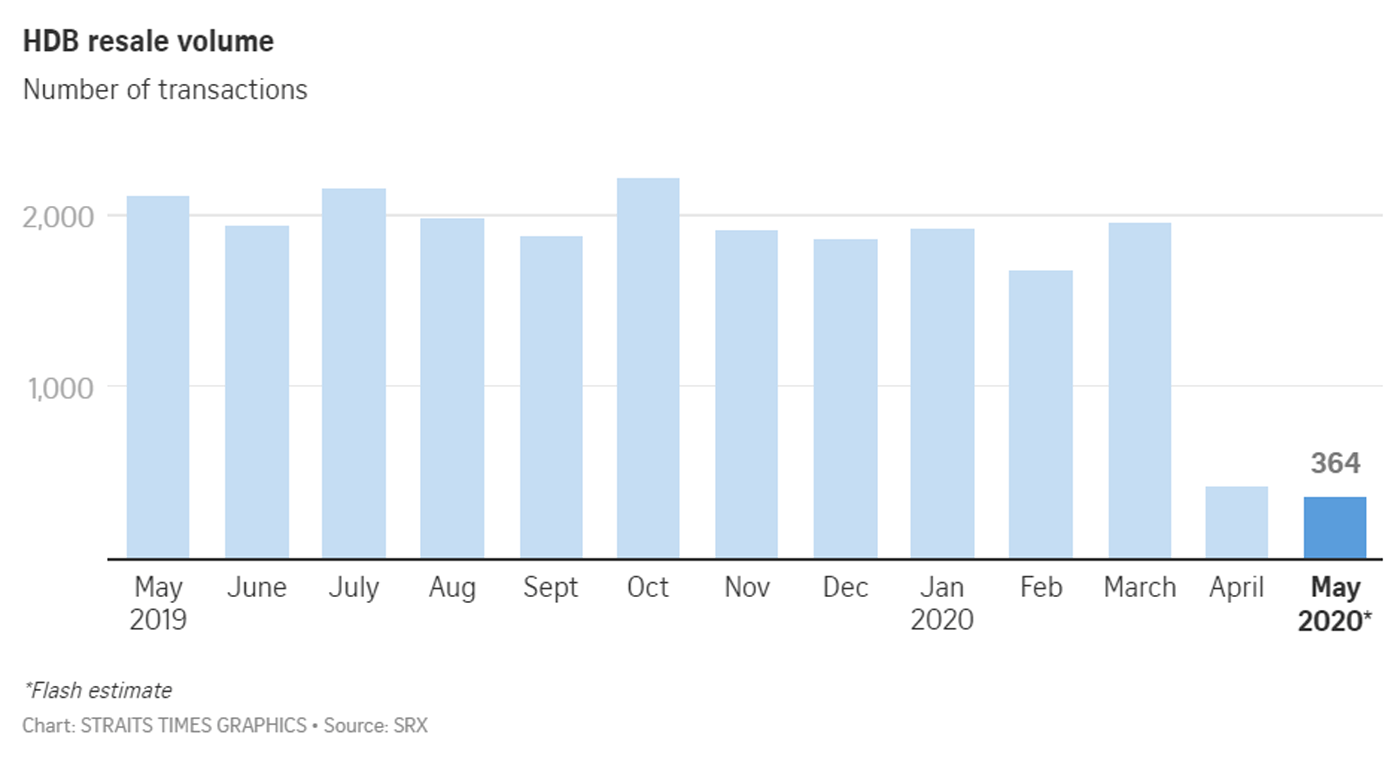
Although the HDB resale volume dips to an all-time low due to no physical home viewings could be conducted, the prices of resale HDB held steady in May, it even increased 0.1 percent compared to a month ago. According to SRX, the resale HDB buyers, on average, paid about $3,000 above the estimated value in May.
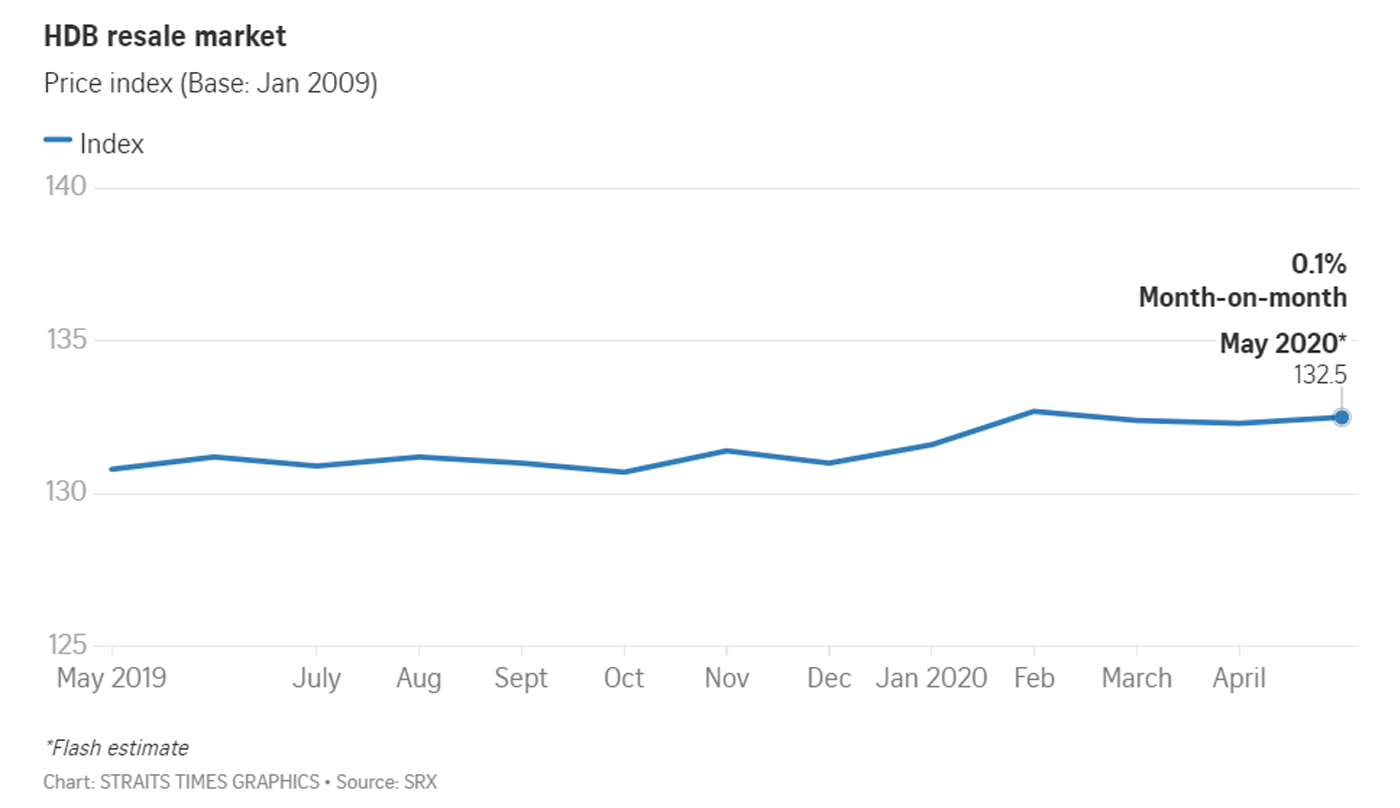
The sales figures in May indicates that there was no panics selling of property as the asking prices still holding steady despite what appears to be free-falling demand.
PRESENT PRIVATE PROPERTY TREND
We see a 0.2 percent decline in the non-landed residential property in April 2020, with 309 units change hand, despite the physical viewing prohibition.
According to 99.co researcher records, 592 transactions were made in May 2020 from both private resale and new homes. A more accurate figure will be presented when URA releases the May report.
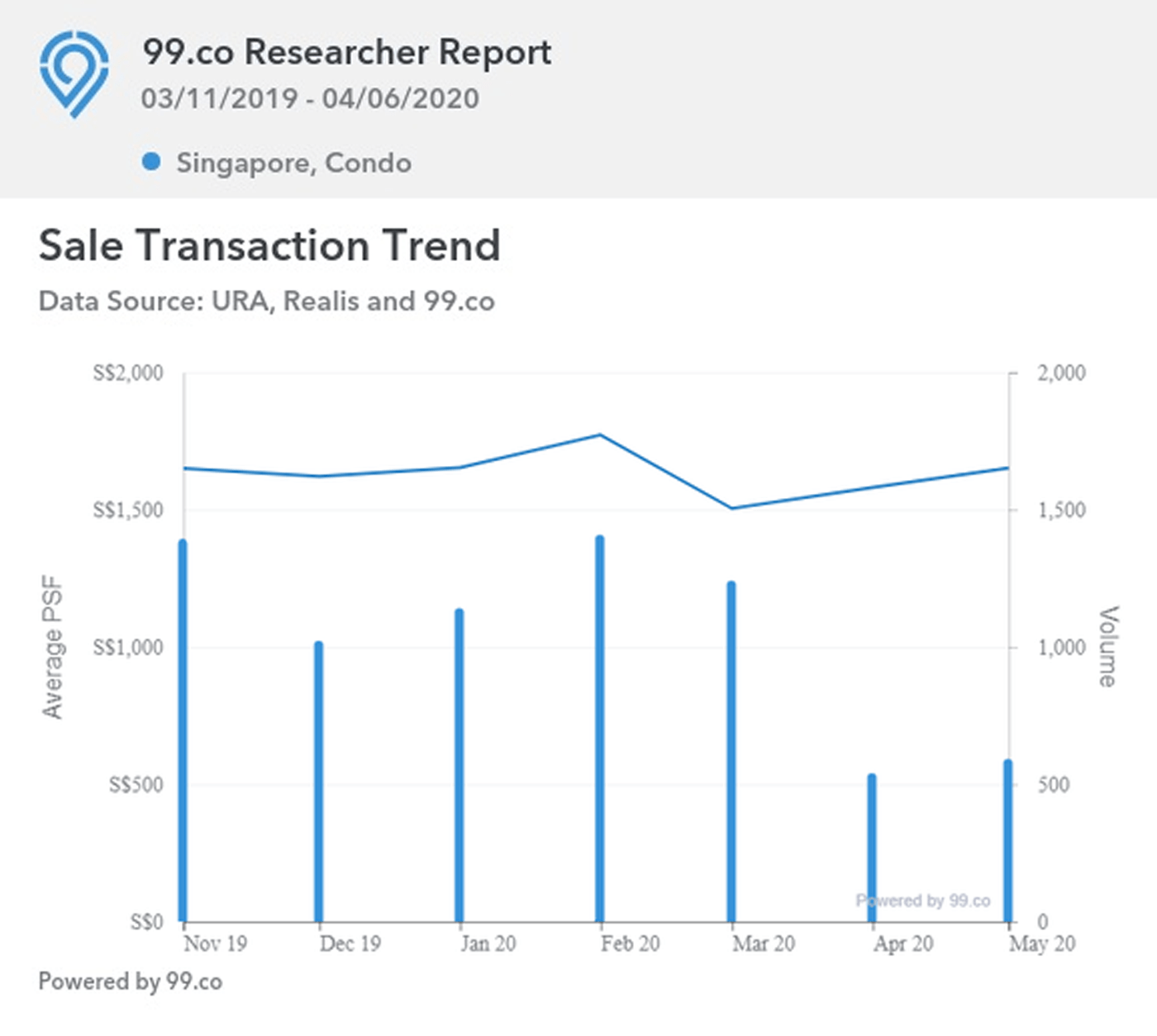
As for EC, also from 99.co researcher records, there were a total of 33 transactions in May 2020 from both resale and new home.
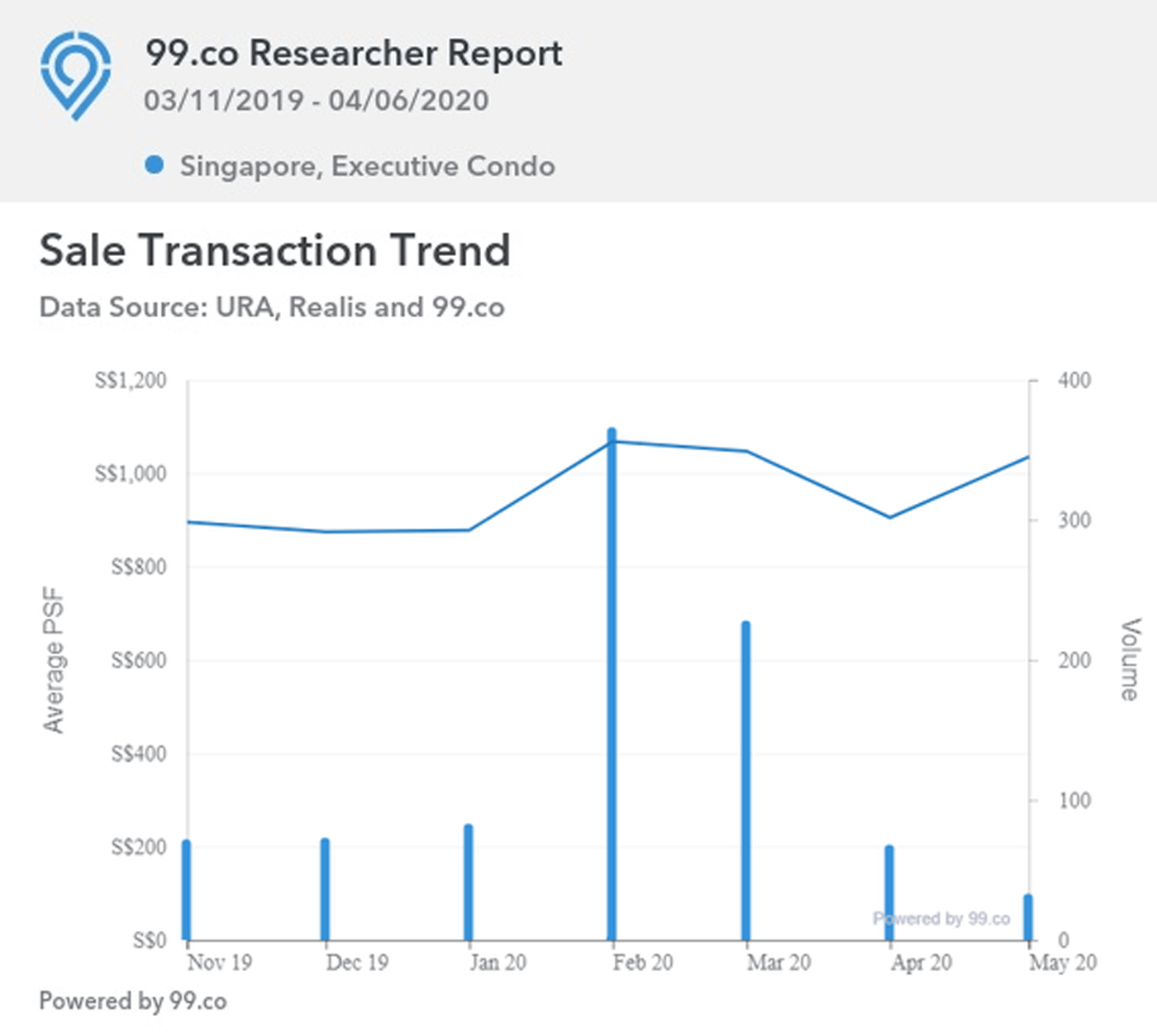
RIDE ON LOWER INTEREST RATE
As the interest rate is in its all-time low, it will be wise to relook into your current mortgage to refinance to lower your monthly home loan commitment. If you are looking to buy, lower interest might be a consideration before committing to purchasing your next home.
You may be keen to read Amid COVID-19 Is It a Good Time To Refinance Your Home Loan Now.
IN SUMMARY
During the last crises, property prices only fell for a short period, and the buying opportunity windows were short as sales volume rebounded fast.
Those who bought the last crisis also seem to have made a higher average gross profit and have a lower probability of losing.
Please note that this article is not about asking you to rush into the market but instead present to you how the Singapore property market is doing. If you intend to purchase or invest property in this downturn, please do your homework and analyze to make the right choice of development or unit to buy.
Do remember that there are always opportunities around, even during a recession or crisis.
Feel free to drop me a message for a friendly discussion, if you need advice on purchasing your next home.
Source: URA, OrangeTee & Tie Reseearch & Consultancy, ST, 99.co
Terms of use: The reproduction or distribution of this publication without the express consent of the author is prohibited. This publication is provided for general information only and should not be treated as an invitation or recommendation to buy or sell any specific property or as sales material. Users of this report should consider this publication as one of the many factors in making their investment decision and should seek specific investment advice. The authors of this publication shall not accept and hereby disclaim all responsibilities and liability to all persons and entities for consequences arising out of any use of this publication.
Hello, I am Darren Ong
As a real estate professional, my duty is to help my clients achieve financial freedom and grow their wealth through Property Wealth Planning™.
I believe that with prudent strategies and a clear investment road map, anyone can enjoy a life of abundance and financial stability.

Darren Ong (王伟丞)
Associate District Director of Huttons Asia Pte Ltd
CEA Registration No.: R026434F
Agency License: L3008899K
Contact: +65 9383 9588

